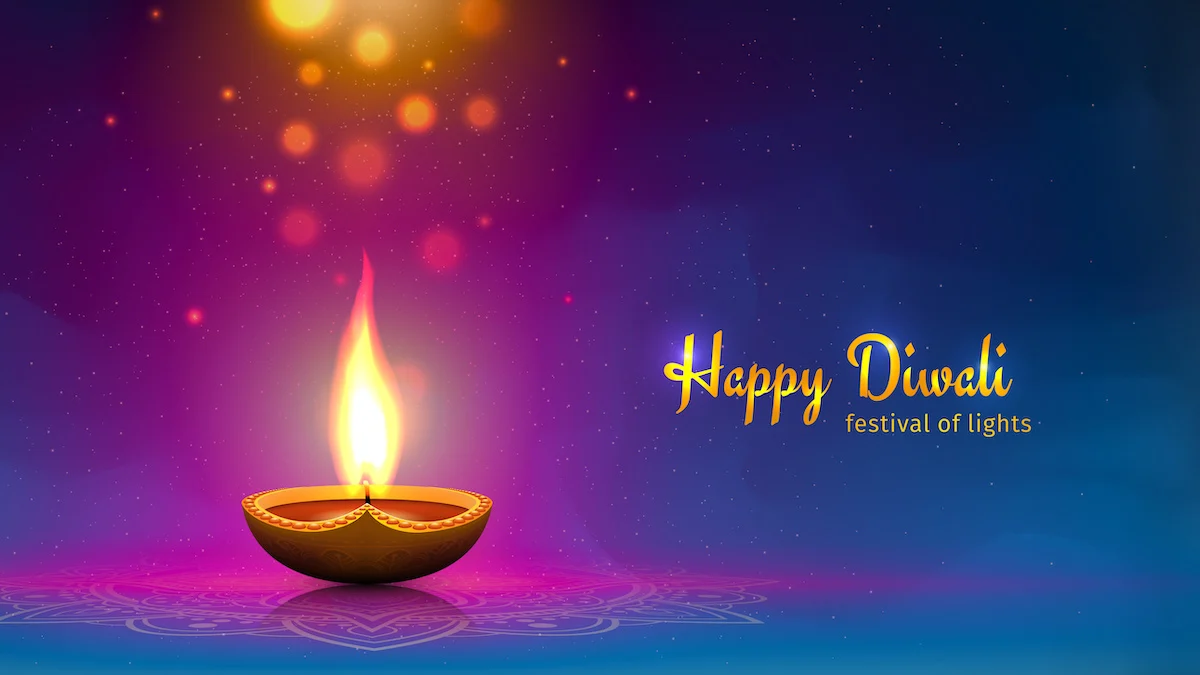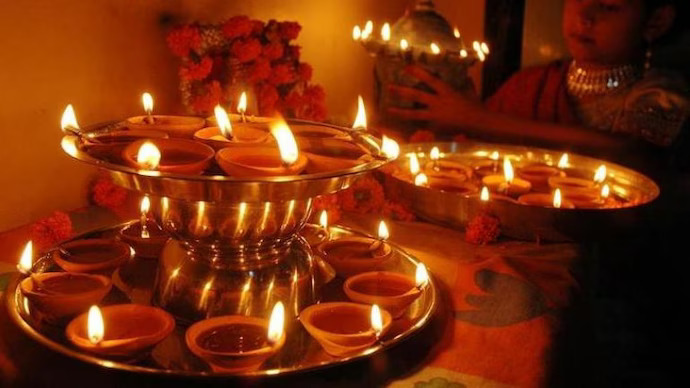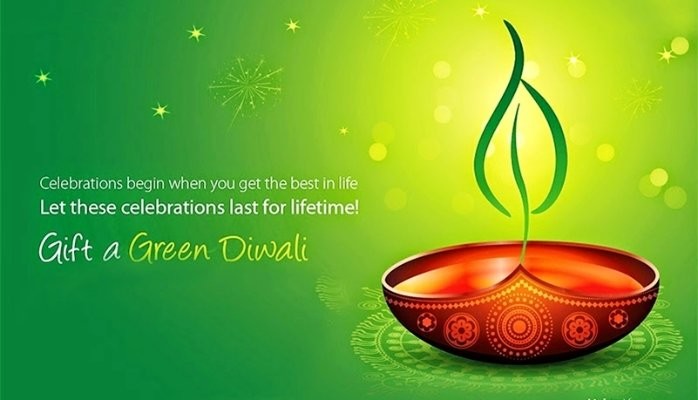Diwali celebration 2023: Festival of Lights and Unity
Diwali, also known as Deepavali, Derived from the Sanskrit words "deepa" (light) and "avali" (row), Diwali is known as the Festival of Lights. It is a significant Hindu festival celebrated with great happiness and enthusiasm across India and by Indian communities all around the world. Diwali celebration is filled with joy, reflection, and unity, marking the victory of light over darkness and good over evil.


Diwali celebration spans for five days, marks the joyous homecoming of Lord Rama after a protracted 14-year exile alongside Sita and Laxmana. Translating directly from Sanskrit as the “row of lights,” Diwali originated from the luminous diyas lit by the people of Ayodhya to welcome their victorious King, Rama, following his triumph over Ravana.
On the day of Diwali, families come together to perform a special puja (prayer) dedicated to Goddess Lakshmi, the goddess of wealth and prosperity, and Lord Ganesha, the remover of obstacles. Lamps and diyas are lit, symbolizing the dispelling of darkness and the welcoming of prosperity into the home. The night sky comes alive with the sparkle of fireworks, although in recent times, there has been a growing awareness of the environmental impact, leading many to opt for eco-friendly celebrations.
Reasons for Diwali celebration in India:
1. Victory of Good over Evil: Diwali commemorates the victory of Lord Rama, an incarnation of the god Vishnu, over the demon king Ravana. This epic battle symbolizes the triumph of righteousness and virtue over hate and tyranny.
2. Return of Lord Rama: Diwali marks the day when Lord Rama, along with his wife Sita and loyal companion Hanuman, returned to their kingdom of Ayodhya after a fourteen-year exile. The people of Ayodhya welcomed their beloved prince by lighting lamps and celebrating his safe return.
3. Goddess Lakshmi Blessings: Diwali is devoted to Goddess Lakshmi, the deity of wealth, prosperity, and abundance. Hindus believe that seeking her blessings on this auspicious day brings financial stability and prosperity.
4. Defeat of Narakasura by Lord Krishna: In some regions, diwali festival is associated with Lord Krishna’s victory over the demon king Narakasura. This event symbolizes the triumph of good over evil.
5. Festival of Harvest: Diwali is celebrated as a harvest festival in many parts of India. It marks the conclusion of the agricultural season and the beginning of a new one. Farmers express gratitude for the bountiful harvest and pray for a prosperous year.
How is Diwali celebrated in India:
- Preparations and Festive Atmosphere: In the weeks leading up to Diwali, homes and public spaces undergo a thorough cleaning and decorating process. Elaborate rangolis, made from colored powders, grace doorsteps, while houses are adorned with twinkling lights, candles, and lamps. The aim is to create an ambiance of warmth and welcome, symbolizing the triumph of positivity over negativity.
- Culinary Delights: Diwali is synonymous with an array of mouthwatering sweets and savory dishes. Families perform the joyous task of preparing traditional delicacies like laddoos, jalebis, and an assortment of delectable sweets. Sharing these treats with family, friends, and neighbors is a heartfelt gesture, strengthening bonds and spreading happiness.
- Exchanging Blessings through Gifts: “Giving” is central to Diwali celebrations. It is a time when individuals exchange gifts as tokens of love and appreciation. These offerings may range from clothing and accessories to sweets and decorative items. The gesture of giving and receiving reinforces the spirit of unity and generosity.
- Lakshmi Puja: Lakshmi Puja is a significant part of Diwali celebrations. It’s a time when families come together to invoke the blessings of Goddess Lakshmi, who is revered as the bestower of wealth, prosperity, and abundance. Lighting diyas (oil lamps) during the puja symbolizes the dispelling of darkness and the welcoming of light into one’s life. The prayers offered during the puja are heartfelt for material wealth and spiritual well-being. People express gratitude and ask for continued abundance in the future.
- Firecrackers: Firecrackers have traditionally been a prominent feature of Diwali celebrations in many parts of India. They are used to add excitement, color, and sound to the festivities, creating a vibrant and lively atmosphere. People light firecrackers to mark the occasion, symbolizing the triumph of light over darkness and dispelling negativity.
- Lighting lamps – It is a central and symbolic practice during Diwali, the Festival of Lights. It holds profound cultural, religious, and spiritual significance in Hindu tradition, as well as in other cultures and religions that celebrate Diwali. It symbolizes the triumph of light over darkness, knowledge over ignorance, and good over evil. It is a powerful metaphor for dispelling negativity and bringing forth positivity and enlightenment.
Beyond India, Diwali is celebrated by Indian communities worldwide. Countries like Nepal, Sri Lanka, Malaysia, Singapore, and Fiji observe Diwali with great fervor, each adding its unique cultural flavors to the festivities.
You may also read – https://himachal.blog/enchanting-festivals-of-himachal-pradesh/
The Five Days of Diwali:
Day 1 – Dhanteras:
Dhanteras marks the beginning of the Diwali festivities. It is dedicated to Goddess Lakshmi, the bestower of wealth and prosperity, and Lord Kubera, the treasurer of the gods. People purchase gold, silver, and utensils, believing they bring good fortune.
Day 2 – Choti Diwali/Narak Chaturdashi:
Also known as Small Diwali, this day commemorates Lord Krishna’s triumph over the demon Narakasura. Oil baths, prayers, and the lighting of lamps symbolize the victory of good over evil.
Day 3 – Diwali:
The main day of celebration, Diwali, is characterized by elaborate prayers and pujas. Homes are decorated with a myriad of lights, lamps, and colorful decorations. Families come together to exchange gifts and relish delectable sweets and savories.
Day 4 – Govardhan Puja/Padwa:
This day honors Lord Krishna’s lifting of the Govardhan Hill to protect the residents of Vrindavan. It is also a day to celebrate the bond between husbands and wives. Married women perform special pujas for the well-being of their spouses.
Day 5 – Bhai Dooj:
The final day of Diwali is devoted to the affectionate relationship between siblings. Sisters conduct rituals to bless their brothers, and families come together to strengthen their bonds.
Embracing a Green Diwali:
Reducing Firecracker Usage: One of the most significant ways to promote a Green Diwali is by minimizing or avoiding the use of firecrackers. Fireworks contribute to air and noise pollution, as well as pose risks to both human and animal well-being.
Opting for LED Lights: Using LED (Light Emitting Diode) lights instead of traditional incandescent bulbs is an energy-efficient alternative. LED lights consume significantly less electricity and have a longer lifespan.
Decorating with Natural Materials: Incorporating natural, biodegradable materials in decorations, such as fresh flowers, leaves, and organic elements, is a sustainable choice. Avoiding plastic and synthetic materials helps reduce environmental impact.
Choosing Eco-Friendly Diyas: Opt for clay or biodegradable diyas (lamps) made from natural materials instead of plastic or metal options. These eco-friendly alternatives are not only sustainable but also support local artisans.
Avoiding Single-Use Plastics: Refraining from using disposable plastic items like plates, cups, and cutlery during Diwali gatherings helps reduce plastic waste. Opt for reusable or biodegradable alternatives.
Essence of Diwali
This Diwali, reflect on the vastness and enduring nature of your life. As the diyas flicker and the fireworks illuminate the night sky, Diwali continues to embody the timeless message of hope, unity, and the victory of light over darkness. So this diwali, cultivate a profound sense of gratitude for all that has been bestowed upon you. Recognize your own potential as a radiant beacon, illuminating the path with happiness and wisdom as you kindle lamps, casting light far and wide.













